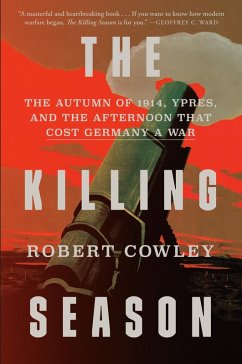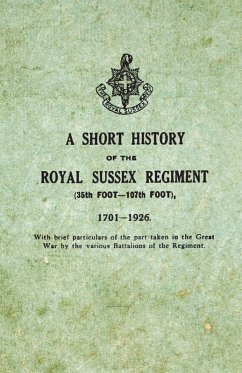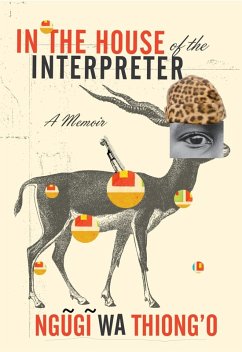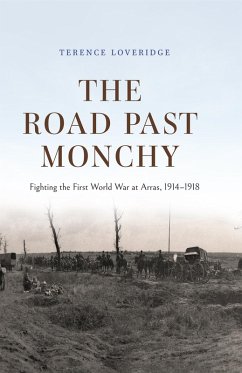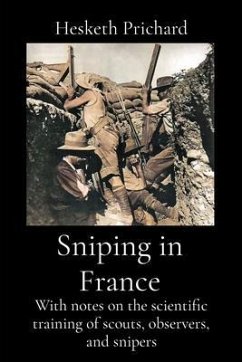
A Frenchman's Duty: A Foot Soldier's Journey Through the First World War (3rd. ed.) (eBook, ePUB)

PAYBACK Punkte
0 °P sammeln!
A quarter century earlier in a disastrous three-week Prussian War, France had lost its eastern-most regions, Alsace and Lorraine, but every patriotic Frenchman knew France was destined to get them back. When Germany invaded France in 1914 and the war approached the du Nord region, Arthur, a 20-year-old butcher from Roubaix, set out to enlist. It was his duty, and the duty of every able-bodied Frenchman to protect France from the invading "Boch." Everyone said it would be a short war like the last one. He would be home by Christmas, or at least by the beginning of Lent, certainly by Easter. "A ...
A quarter century earlier in a disastrous three-week Prussian War, France had lost its eastern-most regions, Alsace and Lorraine, but every patriotic Frenchman knew France was destined to get them back. When Germany invaded France in 1914 and the war approached the du Nord region, Arthur, a 20-year-old butcher from Roubaix, set out to enlist. It was his duty, and the duty of every able-bodied Frenchman to protect France from the invading "Boch." Everyone said it would be a short war like the last one. He would be home by Christmas, or at least by the beginning of Lent, certainly by Easter. "A Frenchman's Duty" is a true story, chronicling Arthur's four and a half years of service in his own words, from his own hand-penned journal, transcribed; translated; annotated by a 30-year military veteran with context and the perspective of the last 100 years; and illustrated with nearly 50 vintage postcards and photographs. Arthur describes to readers his induction and training as a foot soldier in October, 1914, then his first introduction to battle. He records his experiences at Verdun, in the Marne and Somme, in Belgium, and the day the Armistice brought peace to Europe. His journal entries about seeing a war plane for the first time; cooking for his officers and comrades; mercilessly shelled and pinned down by snipers; and being lost in enemy trenches and on the battlefield in the fog with pack mules in his charge, are all first-person accounts of battles not found in other biography or history books about the war. Arthur details the quieter sides of the war, too: rotations out of the trenches; PTSD, then called "shell shock;" interactions with civilians required to put him up for the night; and his leaves, or "permissions," to see family and friends. He gives a face to the personal side of a soldier's life, in and out of battle, something still relevant today. "A Frenchman's Duty," is Colonel (USAF, ret.) John Michael Dumoulin's eighth book. It is written around his grandfather's unpublished 200-page hand-written, literally war-torn war journal. Each chapter begins with an entry from Arthur's fresh and honest notes, followed by carefully-researched historic, geopolitical, social, and technological context. Of the 8 million French soldiers who fought in that war, 7 million spent time in combat, some in Russia and in Africa, but most along the Western Front where Arthur fought. Arthur survived the war, so this story isn't one of those where the hero dies a sad, sudden death at the very end of the book. Although Arthur's diary records the unimaginable horror in war, it is an uplifting read. Like the best-seller "Unbroken" by Laura Hillenbrand, the book reveals the human sides of poise under fire, faith, duty to family and country, a sense of place, and the challenge of wrestling with demons and keeping them locked away.
Dieser Download kann aus rechtlichen Gründen nur mit Rechnungsadresse in A, B, CY, CZ, D, DK, EW, E, FIN, F, GR, H, IRL, I, LT, L, LR, M, NL, PL, P, R, S, SLO, SK ausgeliefert werden.




